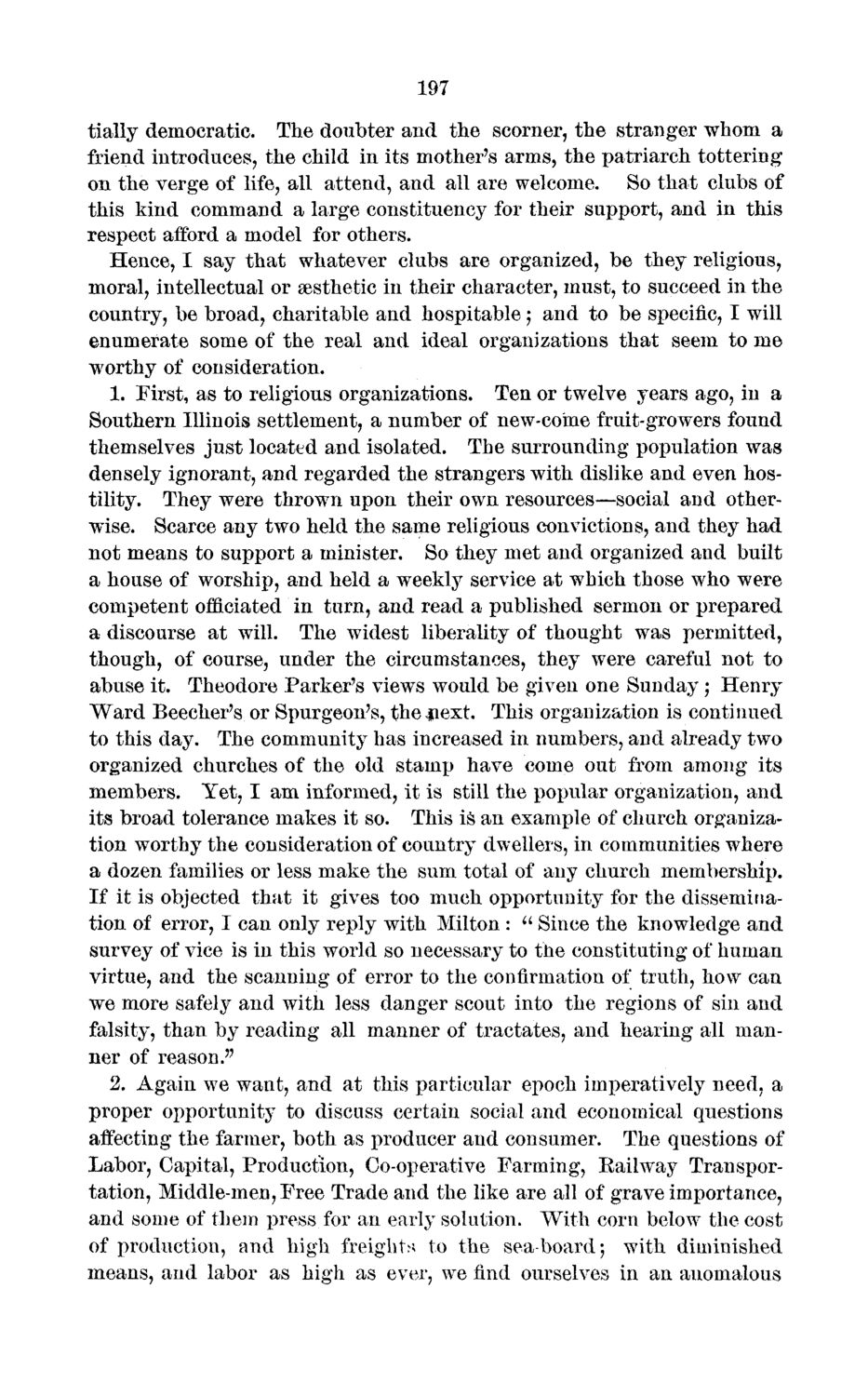| |
| |
Caption: Board of Trustees Minutes - 1873
This is a reduced-resolution page image for fast online browsing.

EXTRACTED TEXT FROM PAGE:
197 tially democratic. The doubter and the scorner, the stranger whom a friend introduces, the child in its mother's arms, the patriarch tottering on the verge of life, all attend, and all are welcome. So that clubs of this kind command a large constituency for their support, and in this respect afford a model for others. Hence, I say that whatever clubs are organized, be they religious, moral, intellectual or aesthetic in their character, must, to succeed in the country, be broad, charitable and hospitable; and to be specific, I will enumerate some of the real and ideal organizations that seem to me worthy of consideration. 1. First, as to religious organizations. Ten or twelve years ago, in a Southern Illinois settlement, a number of new-coine fruit-growers found themselves just located and isolated. The surrounding population was densely ignorant, and regarded the strangers with dislike and even hostility. They were thrown upon their own resources—social and otherwise. Scarce any two held the same religious convictions, and they had not means to support a minister. So they met and organized and built a house of worship, and held a weekly service at which those who were competent officiated in turn, and read a published sermon or prepared a discourse at will. The widest liberality of thought was permitted, though, of course, under the circumstances, they were careful not to abuse it. Theodore Parker's views would be given one Sunday; Henry Ward Beecher's or Spurgeon's, the pext. This organization is continued to this day. The community has increased in numbers, and already two organized churches of the old stamp have come out from among its members. Yet, I am informed, it is still the popular organization, and its broad tolerance makes it so. This i& an example of church organization worthy the consideration of country dwellers, in communities where a dozen families or less make the sum total of any church membership. If it is objected that it gives too much opportunity for the dissemination of error, I can only reply with Milton : " Since the knowledge and survey of vice is in this world so necessary to the constituting of human virtue, and the scanning of error to the confirmation of truth, how can we more safely and with less danger scout into the regions of sin and falsity, than by reading all manner of tractates, and hearing all manner of reason." 2. Again wre want, and at this particular epoch imperatively need, a proper opportunity to discuss certain social and economical questions affecting the farmer, both as producer and consumer. The questions of Labor, Capital, Production, Co-operative Farming, Eailway Transportation, Middle-men, Free Trade and the like are all of grave importance, and some of them press for an early solution. With corn below the cost of production, and high freights to the sea-board; with diminished means, and labor as high as ever, we find ourselves in an auomalous
| |